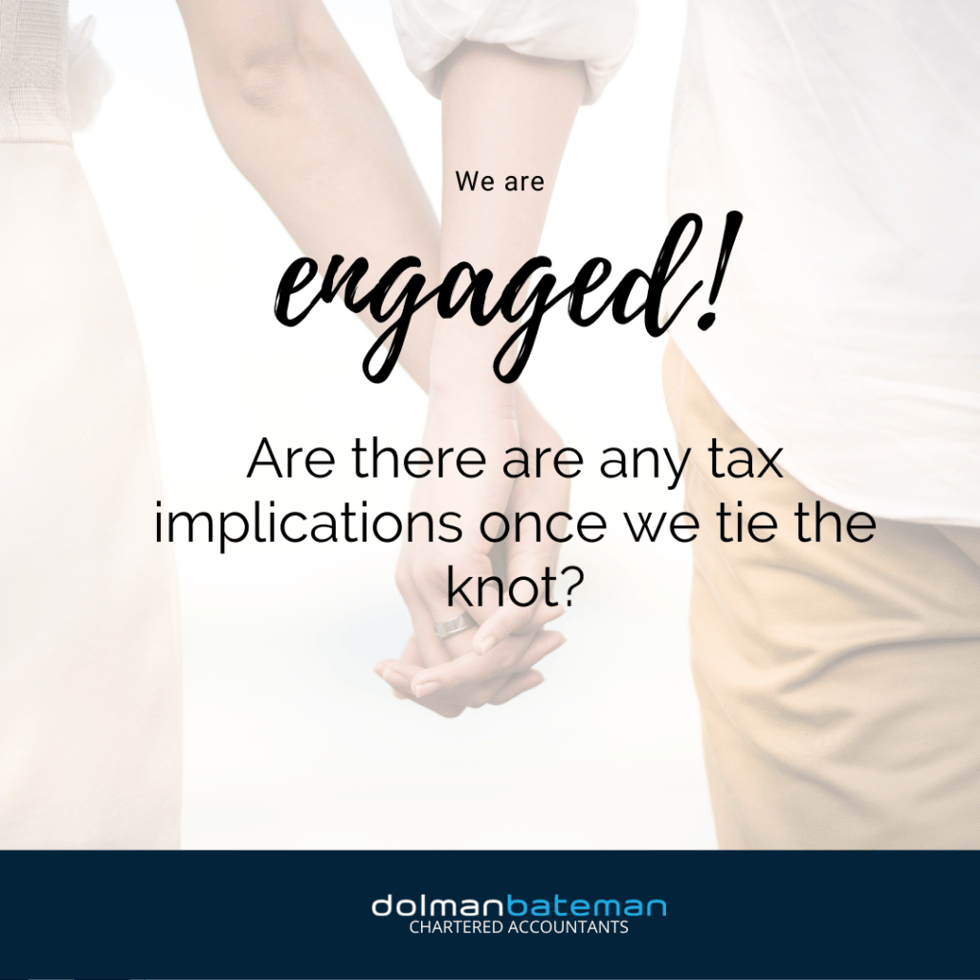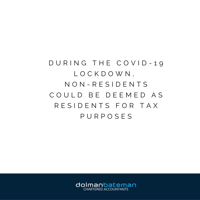Are there are any tax implications once we tie the knot?
Newly engaged or newly married?
We often get asked the question by couples just about to get married:
'Are there are any tax implications once we tie the knot?' and 'Do we need to start lodging joint tax returns?'
You don't need to worry about tax in the lead up to your wedding date. Unless you have a business together, you don't have to lodge a combined tax return. Any share of joint investments, such as interest, dividends and rental properties, is still recorded separately in your respective tax returns. You do need to show on your return that you now have a spouse, and disclose his or her taxable income each year. Your combined income is taken into account if you don't have private health insurance (an extra 1 per cent Medicare levy is charged if you earn over $140 000 combined) as well as when calculating Family Assistance Office benefits such as the child care subsidy and family tax benefits.
If you elect to change your name, you can notify the tax office simply by noting it on the front cover of your next return. You don't need to provide any certified documents. According to the ATO, the definition of a spouse has been extended so that both de facto relationships and registered relationships are now recognised. Your 'spouse' is another person (whether of the same sex or opposite sex) who: * is in a relationship with you and is registered under a prescribed state or territory law * although not legally married to you, lives with you on a genuine domestic basis in a relationship as a couple.
What happens if you both own a property before you met?
Spouses are only entitled to one main residence exemption for capital gains tax purposes between them. If each person owns a main residence then you must: 1. Select one residence for the exemption 2. Apportion the CGT exemption between the two residences. Provided the homes meet the requirements for the main residence exemption, they will both be wholly exempt from CGT for the period prior to the couple being treated as spouses. However, from the time the couple became spouses, only one exemption is available, although this may be divided between the two dwellings.
Example
Elizabeth bought a house in 1992. She lived in it right up to the day she married Joshua in 2006 and moved into his house, which he purchased in 2000. As they elected to treat Joshua's house as their main residence, Elizabeth will be subject to CGT on her house from 2006. She will not be liable for CGT on any capital growth in the 14 years prior to becoming Matthew's spouse.\
If you would like to find out more or are looking for a new accountant, please contact us at Dolman Bateman and one of our expert accountants will be able to help you.
#business #accounting #sydneyaccountants #australianbusinesses #economiccrisis #theaccountants #accountingsydney#accountingexperts #taxtime #taxcrunch #taxandaccounting #theaccountants #australianaccountants #financialadvice #thestimulus #ato #australiantaxoffice




